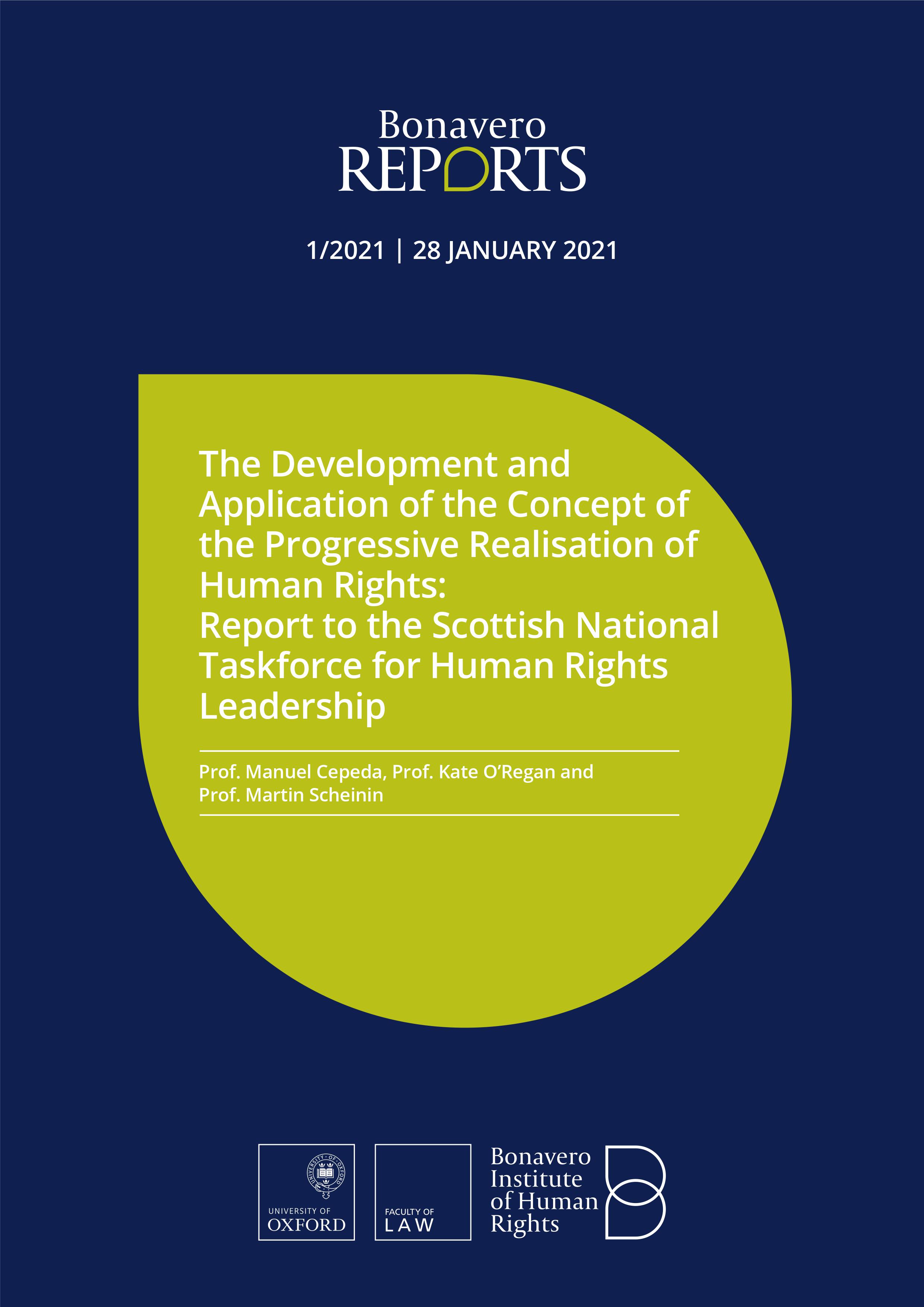Publication of new Bonavero Report 1/2021: ‘The Development and Application of the Concept of the Progressive Realisation of Human Rights: Report to the Scottish National Taskforce for Human Rights Leadership’
The Bonavero Institute of Human Rights announces the publication of Bonavero Report 1/2021, ‘The Development and Application of the Concept of the Progressive Realisation of Human Rights: Report to the Scottish National Taskforce for Human Rights Leadership’. The Report is authored by Professor Manuel José Cepeda Espinosa, Professor Kate O’Regan (Director of the Bonavero Institute) and Professor Martin Scheinin (British Academy Global Professor at the Bonavero Institute of Human Rights). The report was originally submitted as evidence to the Scottish National Taskforce for Human Rights Leadership in December 2020.
Tailored to assisting in the preparation of a statutory human rights framework for Scotland, the Report outlines the development and application of the concept of the obligation of progressive realisation of economic, social and cultural rights (ESCRs) in international, regional and three examples of domestic law and practice (i.e. Colombia, Finland and South Africa). Drawing on the lessons provided by these three very different national systems, the report argues that a democratic government seeking to fulfil its obligation to protect, promote and fulfil ESCRs must do more than merely repeat the text of the ICESCR or other international treaties that provide for ESCRs in national legislation or a constitutional text – although such legislative or constitutional enactment is both important and valuable – and suggests the following five principles that a government needs to bear in mind when seeking to provide for the domestic protection and fulfilment of international human rights obligations beyond their legislative restatement:
Firstly, in the case of human rights that impose positive obligations, legislation – whether primary or secondary – should be enacted stipulating the benefits that will be provided by government (or where appropriate a private body) to fulfil the rights. Secondly, government needs to ensure that state agencies (and where appropriate, private institutions) tasked with the fulfilment of human rights are properly resourced and undertake their duties effectively, responsively and openly. Thirdly, governments need to provide an effective process for monitoring the implementation of rights and for monitoring budgetary allocations to the fulfilment of rights. Fourthly, governments should consider a pluralistic institutional model for rights enforcement involving parliamentary committees, courts, tribunals and fourth branch institutions such as ombuds and human rights commissions. Fifthly, government needs to determine what institutional provision will be made for circumstances where government fails to act progressively to realise rights. In considering what institutional mechanism should be adopted to address this situation, the report suggests that attention be paid to questions of history, constitutional politics and legal culture.
The Report can be accessed by clicking on the image below.


